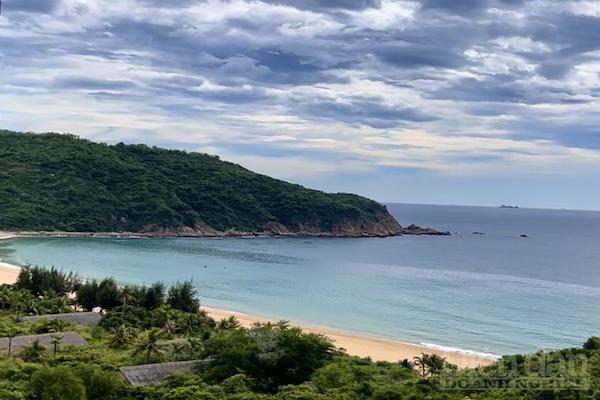5 factors to drive resort real estate recovery
Despite being a category highly damaged by the tough economy and the consequences of the pandemic, resort real estate, according to Mr. Tran Quoc Dung, Vice Chairman of VNREA, nevertheless retains substantial driving factors for recovery in 2024.
During the general real estate market collapse, resort real estate is one of the segments suffering significant issues. However, with the steady market recovery, this segment still offers strong revival potential, according to Mr. Tran Quoc Dung.
First, the tourist industry is sending out very favorable signals. With 12.6 million foreign visitors and 108 million domestic tourists, Vietnam's tourism industry is expected to exceed stated expectations in 2023, producing an anticipated income of 678 trillion VND.

The tourism sector intends to welcome 17-18 million foreign visitors in 2024, while servicing 110 million domestic tourists, with total tourism income reaching roughly 840 trillion VND. Furthermore, the Party's and Government's desire to expand tourism as a vital economic sector, together with the comeback of Vietnamese tourism, would directly fuel the rebirth of resort real estate.
The second component stems from the government's attempts to address challenges and strengthen the legal environment for condotels through a series of initiatives. The Ministry of Construction, in particular, has researched and suggested changes to condotel requirements. In addition, the Ministry of Culture, Sports, and Tourism offered management and commercial laws, while the Ministry of Natural Resources and Environment provided particular instructions on land use for this sort of property.
Furthermore, Decree 10/2023, which takes effect on May 20, 2023, makes it possible to issue certificates of ownership for development projects utilized for tourism reasons (condotels, resort villas), in accordance with tourism law norms. The Government and related authorities will take aggressive steps to develop a legislative framework to assist the comeback of resort real estate.
Third, new visa policies add to the optimistic picture. The extension of the visa exemption term to 90 days is positive, as it provides advantageous circumstances for both leisure and business tourists planning travels to Vietnam who do not want to be hampered by entry limit s. The national airport system is being modernized and extended, with an emphasis on international airports. The objective is to build 5,000 kilometers of expressways by 2030, creating a linked transportation system that connects all provinces and cities. This will be a driving factor behind the "take-off" of tourism in general and resort real estate in particular.
Fourth, the actions of all resort real estate enterprises are critical. Businesses have modified their structures and directions to better fit with the market following a period of investigation. Developers have begun to modify product functions to deliver more distinctive values and feelings for clients, stressing the integration of local culture and community aspects, as well as natural features, into projects rather than merely selling condotel items.
Finally, in the long run, the resort real estate market offers a diverse variety of development opportunities, with substantial future demand. Vietnam's accessible location, unique cultural and historical attractions, attractive and wide coastline, and an increasingly coordinated tourism infrastructure all contribute to this.








